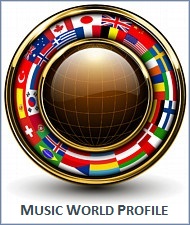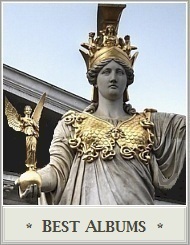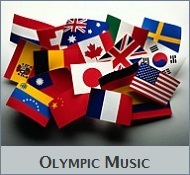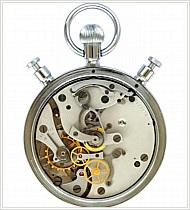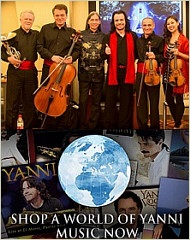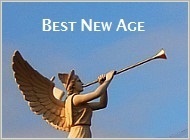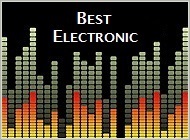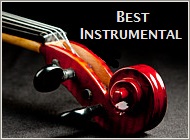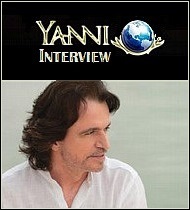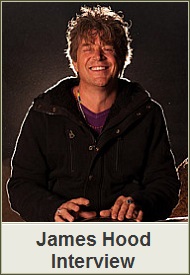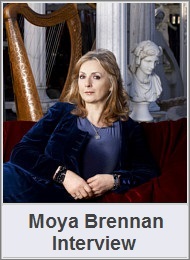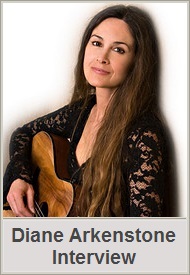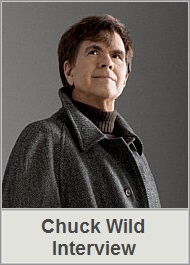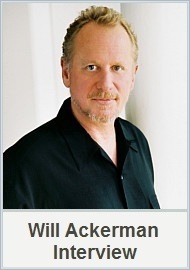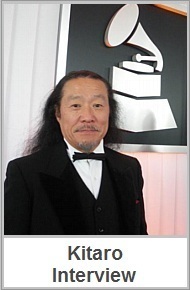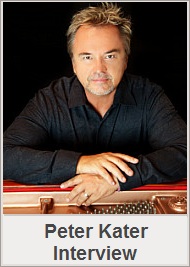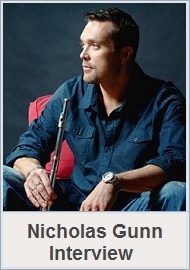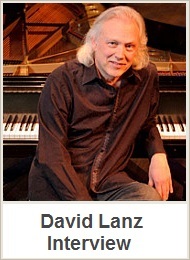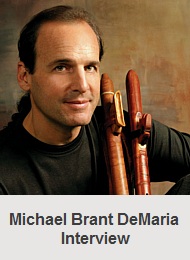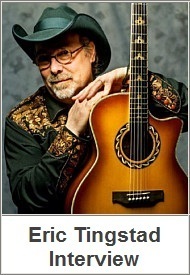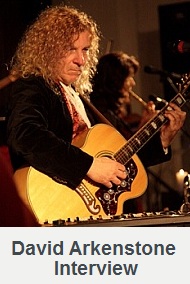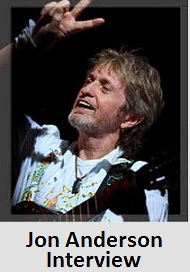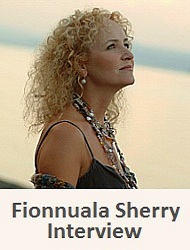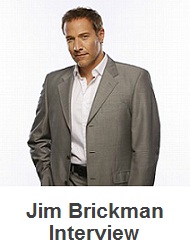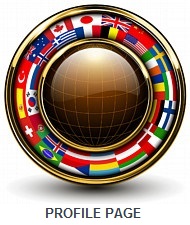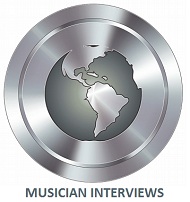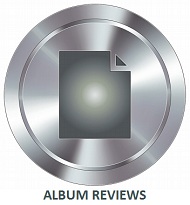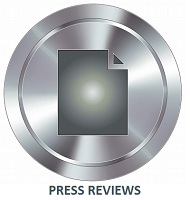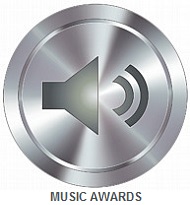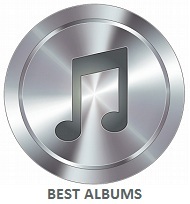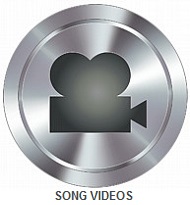
Composing musician Dr. Michael Brant DeMaria, clinical psychologist, recognized poet, author, public speaker, and now recipient of a prestigious Grammy Nomination, was interviewed by John P. Olsen, New Age Music World host and contributing author with NewAgeMusic.Nu.
Interview with Michael Brant DeMaria;
John Olsen : Giving the fact the Christmas season has arrived, your musical and professional endeavors are numerous, thank you for taking time out for us Michael. BT Fasmer and I also congratulate you on your current Grammy Nomination and recent win with the Native American Music Award, (NAMMY) in the Native Heart category in October. This must be very rewarding, so how does it feel to be recognized by these achievements, and why do you think Siyotanka makes such a decisive impression on those who make award decisions?
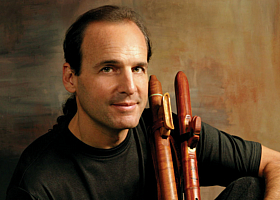 Michael Brant DeMaria : Thank you so much John, and please thank BT Fasmer for me. Your words are greatly appreciated. It is a great honor to be recognized with a Native American Music Award.
Michael Brant DeMaria : Thank you so much John, and please thank BT Fasmer for me. Your words are greatly appreciated. It is a great honor to be recognized with a Native American Music Award.
Although I work in many genre’s of music including New Age, World and Ambient music – I have a deep love and respect for Native American culture, music and wisdom and it’s meant a great deal to me – so this honor is particularly meaningful. The music of Siyotanka really appears to have touched many people with its sincerity, simplicity and honesty.
My goal with the music was to serve the story and try to tell the story musically even if you had never seen the play or are even unfamiliar with the Legend of Siyotanka. What’s beautiful about it is it is really an archetypal story for musicians.
We don’t have room to go into the whole story here – but what I can tell you is it’s a story about finding the song that lies inside of our hearts and the importance of sharing that song with the world – because it is that soul song that tells us who we are, where we come from and where it is we are going. Ultimately, it is also a story about peace – how wood is fashioned for the first time into an instrument of love instead of into a weapon of war. I think that is truly an important story for our time.
John : You have also performed with Grammy nominees, past winners, and are now among a select group of musicians. Who are the artists you have performed with in the past, and what is it like to perform with these other fine musicians?
 Michael : Thank you again John for your kind words. It is an incredible honor to be recognized in this way. My first love was music and it has been my therapy and a balm to my heart and soul so often in my life. I’ve had the honor of performing with many of my musical heros. Two in particular, David Darling and R. Carlos Nakai are two that inspired me for many years.
Michael : Thank you again John for your kind words. It is an incredible honor to be recognized in this way. My first love was music and it has been my therapy and a balm to my heart and soul so often in my life. I’ve had the honor of performing with many of my musical heros. Two in particular, David Darling and R. Carlos Nakai are two that inspired me for many years.
It was Nakai’s Earthspirit which was the first Native American Flute recording I ever heard. It literally brought tears to my eyes. David’s cello can also just reduce me to a puddle. To admire someone for so many years and then have the opportunity to play with them is a true joy. I actually have studied with David over the last four years and am know certified with him as a Music Improvisation Teacher through his Music for People program. He has a huge and generous heart. He’s nominated in the New Age category this year.
John : Perhaps you could tell us how your musical odyssey began. What were the circumstances of your early beginnings in music, and how did you progress from there?
Michael : At the age of 6 years old I would go to the family piano and strike one note at a time and close my eyes to enjoy listening to the note arise and then slowly dissipate. I could do that for long stretches of time. I had a number of surgeries as a child and I realized at a very young age that this process was very healing and soothing for me. I realize now as a psychologist it was a form of music therapy I was practicing – like meditation or self-hypnosis – a trance state if you like. For me, all I know is it felt very sacred to me and could take me to another world.
Then the next turning point musically came when I was 9 years old when I heard my first live jazz at the local high school auditorium. I was absolutely captivated by the drummer on his pearl white drum set electrifying the audience with his syncopated rhythmic playing. My heart did a triple back flip with a double twist – I was just blown away ! I went home that night and announced I was going to be a drummer. It didn’t go over too well – we were a quiet Catholic family – but I sat and practiced my drum pad for months until my parents saw I was serious enough and then one day relented and bought me my own white pearl set of drums that I just adored and played every chance I could get. I had found rhythm and I was addicted !
Then at the age of 18 I bought my first Moog synthesizer. That 6 year old that liked to plunk one note at a time was totally blown away with the sounds that came out of this synthesizer – WOW ! It was like a drug for me. And not only could I generate a sound, but I could modulate it in all kinds of ways. I became a dedicated synthesist for many years. I always heard sounds within me that I have sometimes called the music of the spheres or the hum of God – and here was this keyboard that allowed me to explore to my heart’s content some really wild, far out sounds.
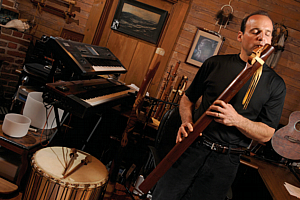 Then, at the age of 31 while heading out to enact a very traditional vision quest in Canada I heard a Native American Flute for the first time – and that took me to a whole other world. There was something about the bittersweet, hauntingly familiar sound of the flute that took me to an even deeper place inside. I had never played a wind instrument before and to make sound with your breath – well, there is nothing quite like it. What was different about the flute was I was in need of some profound healing – it helped me cry and grieve and slowly, but surely brought me back to life after suffering from what I have come to call ‘compassion fatigue’ after working with severe cases of child abuse and neglect for many years. As a result, I’ve spent the last 16 years exploring a variety of ethnic and world percussion and aerophones into my music resulting in my last three commercially released albums, The River, Ocean and Siyotanka.
Then, at the age of 31 while heading out to enact a very traditional vision quest in Canada I heard a Native American Flute for the first time – and that took me to a whole other world. There was something about the bittersweet, hauntingly familiar sound of the flute that took me to an even deeper place inside. I had never played a wind instrument before and to make sound with your breath – well, there is nothing quite like it. What was different about the flute was I was in need of some profound healing – it helped me cry and grieve and slowly, but surely brought me back to life after suffering from what I have come to call ‘compassion fatigue’ after working with severe cases of child abuse and neglect for many years. As a result, I’ve spent the last 16 years exploring a variety of ethnic and world percussion and aerophones into my music resulting in my last three commercially released albums, The River, Ocean and Siyotanka.
John : Later in life you began your own private practice as a clinical psychologist and therapist, creating ONTOS, to help individuals and groups advance in life. What are the principals, mission, and what led you to create ONTOS?
Michael : ONTOS is the Greek word for Being. Being is the most inclusive word in every language. The verb ‘to be’ weaves its way in and out of every sentence and every moment. It refers to the most mysterious essential core of who we are – our inmost Being. For me Being refers to the wholeness that we already are when we connect to the truth that is in our hearts – which is our natural interrelatedness with each other, the natural world and the cosmos – ultimately to all things.
We are very lost today as a culture and a species. We have lost our natural sense of being part and parcel of the earth and cosmos. We have rather been taught the big lie of western culture that somehow we are different and superior to nature when in fact we are part and parcel of nature – we are a part of the web of life, not the owner or exploiter of it.
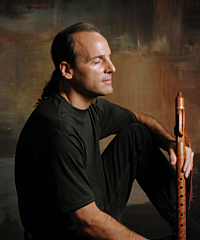 We are paying a dear price for that today – and we need this deeper wisdom of the interconnectedness of all beings to get back into a healthier alignment with the natural world and each other. All human beings share 99.9 percent of the same DNA – only .1 percent accounts for all the differences between all people.
We are paying a dear price for that today – and we need this deeper wisdom of the interconnectedness of all beings to get back into a healthier alignment with the natural world and each other. All human beings share 99.9 percent of the same DNA – only .1 percent accounts for all the differences between all people.
We are all truly brothers and sisters, siblings in the cosmos. We even share 50 percent of the same DNA with Bananas! We are all connected with all living things. The mission of Ontos is to know that people heal and get better when they begin to experience their connection to life, nature and each other in a more fundamental and profound way.
John : Stress for the caregiver is always a result when providing treatment to patients, so how do you yourself regroup, after treating hospice, cancer patients, and abused or neglected children in your care?
Michael : Music, meditation and time in nature. I like to say my holy trinity is nature, creativity and spirituality. They bring me back into alignment. Another analogy I like to use is if I go to the river and get a bucket of water and bring it to people who are thirsty I have to be honest with myself when the bucket is empty and return to the river.
In this way, I remember that I am simply a fellow journey or who is all too human and I try very hard to remind myself to take care of myself in order to be of good to others. I’ve burned out once before and am very sensitive about avoiding that again. For this reason I limit my clinical work to three days a week – and try to keep 4 days a week open for my creative work. This has been a really nice balance for me. Creativity tends to put into my heart and soul what therapy takes out – and therapy tends to put in what creativity pulls out. It’s like crop rotation – replenishing myself by alternating between being an artist and a healer.
John : In your Healing Sound Series you began with The River, which led to the Ocean album. Your next in series will be titled Earth. What led you to begin the series, and in what ways are the albums alike and what are some of the tonal differences in the series?
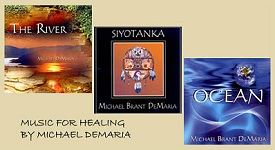 Michael : Great question John. The Healing Sound Series arose from my desire to use music in a way that our ancient ancestors understood it’s use most – for healing.
Michael : Great question John. The Healing Sound Series arose from my desire to use music in a way that our ancient ancestors understood it’s use most – for healing.
Our culture is the only culture on the planet that has used music primarily as a form of entertainment. To the ancient and indigenous cultures on our planet music was always used as a form of community building, ritual, meditation, prayer and most importantly, healing. The medicine man or woman used music, dance and song to do their healing work. This was the first inspiration for the Healing Sound Series.
The second is that as a psychologist I make sound tracks for relaxation tapes and visualization journeys for my clients and have for the last 25 years. I wanted to challenge myself to use this music and make it available to massage therapists, acupuncturists, yoga teachers and meditation teachers on a larger basis. It is also the desire of that 6 year old inside of me that still sees the miracle of life being how something arises and then disappears – perhaps it is an acknowledgement of the fleeting nature of life and how we each come into the world as a song and then must also eventually return to that place we came from. The River actually arose out of my work with hospice patients and my belief that life is like a river – and that when we die – like the river – we just change form as we empty our being into the vastness of Being itself – the Ocean.
The Ocean became a natural follow-up to the The River – to explore this more formless place – the place from which the river comes from and to which it returns. You see this whole mysterious process of living and dying just fascinates me to no end – and music has been an amazing vehicle for me to explore this fascination in a healing way – and it turns out has been healing to others as well – which gives me great joy.
John : Your current release Ocean is dedicated to hurricane survivors like yourself, and reflects on events that have happened in your life. Do you mind telling about this past event, and what is your musical objective for you and the listener?
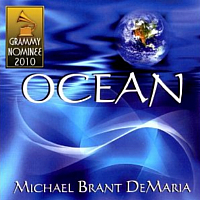 Michael : The Ocean album documents a particularly tragic and painful time in my life after we lost our home during hurricane Ivan. We had to move into the back of my office – my daughter was a senior in High School at a time.
Michael : The Ocean album documents a particularly tragic and painful time in my life after we lost our home during hurricane Ivan. We had to move into the back of my office – my daughter was a senior in High School at a time.
Our lives were turned inside out and upside down when a 15 foot wall of water enveloped our whole neighborhood. 90 percent of the homes on our street were destroyed. The place I taught my daughter to ride her bike, do her first cartwheel and build her playhouse – the place we called home would never be the same.
The water had always been a source of relaxation and peace for me – now it looked anything but – an ominous, unpredictable and dangerous force. It really took me initially to a dark place – but it was out of this darkness that the music started to teach and heal me. I started having dreams of swimming with dolphins, whales and strange underwater creatures. The music really reveals that out of this darkness something beautiful comes.
John : Siyotanka hit #1 and remained in the Top 20 chart for 6 months, you went on to win a Native American Music Award (NAMMY) in the Native Heart category, recently presented in Niagara falls. This album is based on a story, so could you tell us the storyline, and theatrical aspects of Siyotanka?
Michael : Siyotanka is the Lakota word for ‘flute’ and sometimes is translated as ‘great song’. The legend of Siyotanka involves how the first Native American Flute came to be. It’s about a boy trying to find his place in the world.
He thinks he is to hunt and elk – but doesn’t have much success and on the way he is distracted by this hauntingly beautiful, ghost like music. He follows the sound until he comes to a cedar tree that has had a branch hollowed out by termites.
There is a woodpecker who has hollowed out a number of holes in the branch and is jumping from one hole to the other and as he does the wind blows through the branch and creates this mysterious music. He wants nothing more than to make this wood sing like that. It takes time and many adventures – a vision quest, a dream of the spirit of the woodpecker and many other lessons, but finally he learns to make the wood sing. He learns about humility, respect and listening deeply to Nature.
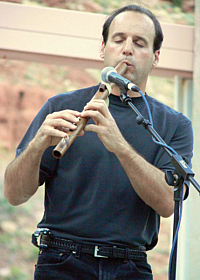 The story reminds us when we are lost and alone, feeling rejected and abandoned, if we look inside our hearts and find the song that is living there we can find our way even through the darkest of times. How a piece of wood can be fashioned into a musical instrument instead of into a weapon – to bring peace instead of war, love instead of hate. Truly a story for our time. The play itself was quite a production. We had a 30 person production team with actors, crew, a beautiful set designed by my co-writer Stephen Lott who also did the ‘shield’ for the cover of the CD. You can find much more about the legend and some of the story behind the music at www.siyotanka.com
The story reminds us when we are lost and alone, feeling rejected and abandoned, if we look inside our hearts and find the song that is living there we can find our way even through the darkest of times. How a piece of wood can be fashioned into a musical instrument instead of into a weapon – to bring peace instead of war, love instead of hate. Truly a story for our time. The play itself was quite a production. We had a 30 person production team with actors, crew, a beautiful set designed by my co-writer Stephen Lott who also did the ‘shield’ for the cover of the CD. You can find much more about the legend and some of the story behind the music at www.siyotanka.com
John : You also are currently working on another album titled Voices, which explores new territory for you. What can we expect from the Voices project?
Michael : This is something I’m very excited about John. Voices will be just that – nothing but human voices. I have been working with my voice more and more – and I’ll be using multi-layering of my voice and perhaps some guess vocalists on this album and we hope it will be a wonderful addition to the Healing Sound Series.
John : In the past you have said nature inspires you the most. What aspects of nature, and how does silence, and individual notes from beginning to end, play an integral role in what you want people to hear and experience in your music?
Michael : My holy trinity is Nature, creativity and spirituality. For me nature is God’s art. When we immerse ourselves in nature we are putting ourselves in alignment with the creative infinity of the universe. Nature has a way of not only healing us, but inspiring us. To me the music of nature is the most profound. There is an organic quality and rhythm to the sound of nature. For me it’s the music of life itself. I never tire of listening to the many sounds present in the natural world. I say I get many of my best stuff from the feathered one’s (the birds)!
John : The instruments you play are keyboards, synthesizer, indigenous flutes, percussion, claves, and other aerophones, but you consider yourself a flutist at heart. Why is the flute your passion, and what are some of the varying tonal attributes in the indigenous flutes and percussion instruments used in your music?
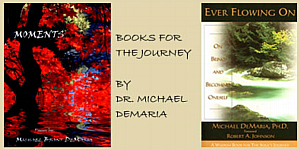 Michael : Yes, John, although I grew up playing keyboards and percussion – and fell in love with the synthesizer in my late teens and 20’s – I’ve come to realize I’m a flute player at heart. There is something about using my breath to create music that connects me with the spirit-that-moves-in-all-things in a profound way. I disappear into the music playing the flute like nothing else. I close my eyes and it’s the closest thing I have ever experienced to flying. I feel my spirit soar when I play – and it is a thrill and joy like no other for me.
Michael : Yes, John, although I grew up playing keyboards and percussion – and fell in love with the synthesizer in my late teens and 20’s – I’ve come to realize I’m a flute player at heart. There is something about using my breath to create music that connects me with the spirit-that-moves-in-all-things in a profound way. I disappear into the music playing the flute like nothing else. I close my eyes and it’s the closest thing I have ever experienced to flying. I feel my spirit soar when I play – and it is a thrill and joy like no other for me.
John : You have presently authored 3 personal growth books, and have stated a love for poetry having performed on stage with world renowned poets. Could you tell us about the books you wrote, and some of your experiences as a recognized author and expressions as a poet?
Michael : I have written 3 books. The first Horns and Halos: Towards the Blessing of Darkness is more of an academic work. This was published in 1992 and explores the terrain of love/hate relationships. I was working with child abuse victims at the time – and I was trying to understand how loving relationships could turn so violent. It was a way for me to make peace with much of the tragedy I was witnessed to for so many years in my early clinical work.
My second book, Ever Flowing On: On being and becoming oneself is a book for a general readership and was my first attempt to write less academically and more from the heart. It includes the story of my first vision quest and my love of music and nature. It is a personal growth book for the serious seeker. It has also been called a wisdom book for the soul’s journey. It is broken into 4 parts, The Source, The Abyss, The Quest and The Dance. It was inspired by a dream where my grandmother came to me and asked me if I died tomorrow, what of value do I have to leave my daughter. My goal was to write down what I felt was important in living a life. It is a book that is near and dear to my heart – a labor of love ultimately for my daughter.
My last book is Moments, which is my first full length collection of poetry. Next to music, poetry is my favorite form of expression. It has always been a companion for me during dark times. It was a great joy for me to play with Robert Bly and David Whyte, both of whom have inspired me creatively in many ways. I can’t remember who said it, but the quote I love most about poetry is that in every poem the universe gives up a secret. I really like that idea – and I personally experience it that way. For me, life itself ultimately is a poem – and to live fully and well is to become an artist of life.
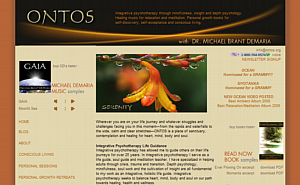 John : Your achievements and experiences are just too numerous to list in this single interview Michael, so I wanted to give you an opportunity to tell our readers anything about yourself we haven’t covered in our interview.
John : Your achievements and experiences are just too numerous to list in this single interview Michael, so I wanted to give you an opportunity to tell our readers anything about yourself we haven’t covered in our interview.
Michael : John, you have been so kind and generous with your words. It’s an honor to be part of newagemusic.nu. I guess the only other area I’d like to share about is that in addition to Siyotanka I have written another play, Café Mezzo that was produced and received wonderful reviews including best play of the year for the theatre it was produced in (The Loblolly Theatre). I have also written a full length screenplay that I hope to see produced one day. My greatest love is weaving music, words and images into meaningful and hopefully healing stories for the soul’s journey. Stories and music have tremendous power to move us and transform us – so it is my hope in my creative work to add a bit of sanity and beauty to a world that is in desperate need of it. I hope I can also inspire others to share their own creative expressions. For me, the artist does for a culture, what a therapist does for an individual. So ultimately all my work arises from the same inspiration and motivation – to heal and become more and more whole – individually and collectively.
John : We wish the best for you as a Grammy nominee Michael. It’s been an honor to learn more about you while preparing, then conducting our interview together. On behalf of our readers, thanks again and let’s keep in touch.
Michael : Thank you so much John. I have thoroughly enjoyed this interview and the depth and genuineness of your questions. Yes, by all means let’s stay in touch – it’s again a joy to be a part of newagemusic.nu! Wishing you, your family and all your readers a blessed holiday season!
Visit Michael’s ontos.org website. My album review of Ocean and related articles are on Michael’s page.
There is a footnote to this Interview. Michael informed me that ZMR has placed his Ocean album at the Top # 1 Recording for November 2009. In addition, Improvijazzation has selected Ocean as their Best Ambient Album of the Year for 2008. This is great news, and we are proud to present some of today’s top talents in the music industry to our readers. Congratulations again Michael! Photos are courtesy of ontos.org.
